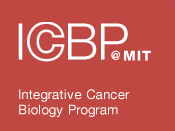| Title | Bcl-2 family genetic profiling reveals microenvironment-specific determinants of chemotherapeutic response. |
| Publication Type | Journal Article |
| Year of Publication | 2011 |
| Authors | Pritchard, JR, Gilbert, LA, Meacham, CE, Ricks, JL, Jiang, H, Lauffenburger, DA, Hemann, MT |
| Journal | Cancer Res |
| Volume | 71 |
| Issue | 17 |
| Pagination | 5850-8 |
| Date Published | 2011 Sep 1 |
| ISSN | 1538-7445 |
| Keywords | Animals, Apoptosis, Cell Line, Tumor, Gene Expression Profiling, Humans, Leukemia, Lymphoma, Mice, Mice, Inbred C57BL, Proto-Oncogene Proteins c-bcl-2, Tumor Microenvironment |
| Abstract | The Bcl-2 family encompasses a diverse set of apoptotic regulators that are dynamically activated in response to various cell-intrinsic and -extrinsic stimuli. An extensive variety of cell culture experiments have identified effects of growth factors, cytokines, and drugs on Bcl-2 family functions, but in vivo studies have tended to focus on the role of one or two particular members in development and organ homeostasis. Thus, the ability of physiologically relevant contexts to modulate canonical dependencies that are likely to be more complex has yet to be investigated systematically. In this study, we report findings derived from a pool-based shRNA assay that systematically and comprehensively interrogated the functional dependence of leukemia and lymphoma cells upon various Bcl-2 family members across many diverse in vitro and in vivo settings. This approach permitted us to report the first in vivo loss of function screen for modifiers of the response to a front-line chemotherapeutic agent. Notably, our results reveal an unexpected role for the extrinsic death pathway as a tissue-specific modifier of therapeutic response. In particular, our findings show that particular tissue sites of tumor dissemination play critical roles in demarcating the nature and extent of cancer cell vulnerabilities and mechanisms of chemoresistance. |
| DOI | 10.1158/0008-5472.CAN-11-1014 |
| Alternate Journal | Cancer Res. |
| PubMed ID | 21784872 |
| PubMed Central ID | PMC3165087 |
| Grant List | 1-U54-CA112967 / CA / NCI NIH HHS / United States R01 CA128803 / CA / NCI NIH HHS / United States R01 CA128803-05 / CA / NCI NIH HHS / United States |
